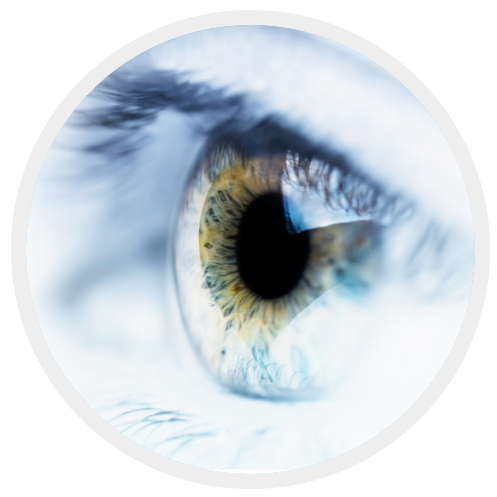
Retinal Vascular Disorders
The eye has a complex and delicate blood supply. A number of conditions can affect the blood supply to the eye and retinal vascular problems can have a significant impact on vision.
This is due to a sudden blockage in the retinal vein, either the main vein to the retina (Central Retinal Vein Occlusion ) or to one of the smaller branches (Branch Retinal Vein Occlusion )
These can occur at any age but are mostly found in the over 65s. Retinal Vein Occlusions are more common in people who also have high blood pressure, high lipids in the blood, diabetes and who smoke.
Dr Minihan will liaise with your general practitioner or specialist doctor with regard to investigating the above conditions and other rarer medical problems which may be associated.
People usually become aware of a sudden, painless loss of vision in one eye.
These are more common than Central Retinal Vein Occlusions. They may or may not cause loss of vision depending on where they affect the retina. If the vein is severely occluded, laser treatment may be necessary to prevent new blood vessels forming and leading to further loss of vision.
Vision may also be poor due to leakage of fluid from damaged blood vessels in the central part of the retina (macular oedema). Treatments in the form of injections may help improve the vision due to macular oedema.
Dr Minihan will assess the retina and the macula. She will determine the extent of the problem and discuss the best treatment with you.
This type of occlusion often has a more significant effect on vision. There is a milder form (non-ischaemic central retinal vein occlusion) or a more severe form which has a higher risk of poor vision and complications (ischaemic central retinal vein occlusion).
Laser treatment may be necessary to prevent new blood vessels forming and leading to further loss of vision.
Vision may also be poor due to leakage of fluid from damaged blood vessels in the central part of the retina (macular oedema). Treatments in the form of injections may help improve the vision due to macular oedema.
Dr Minihan will assess the retina and the macula in detail. She will discuss the best treatment options with you.
Dr Minihan may recommend laser treatment. This is performed as an outpatient and you have drops to anaesthetise the surface of your eye. Dr Minihan will then place a contact lens on your eye and apply the laser. You will notice numerous bright lights. Usually this is painless but some people are aware of some ache or discomfort during and, occasionally, after the treatment. Laser treatment usually is completed in 15-20minutes. Immediately after treatment, the vision is quite blurred but it recovers quickly.
Dr Minihan may advise you that you need an intravitreal injection to treat macular oedema due to vein occlusion.
This is delivered in a special room, as a day case and using drops to anaesthetise the surface of your eye. You will need to take antibiotic drops after the injection to reduce the risk of infection.
